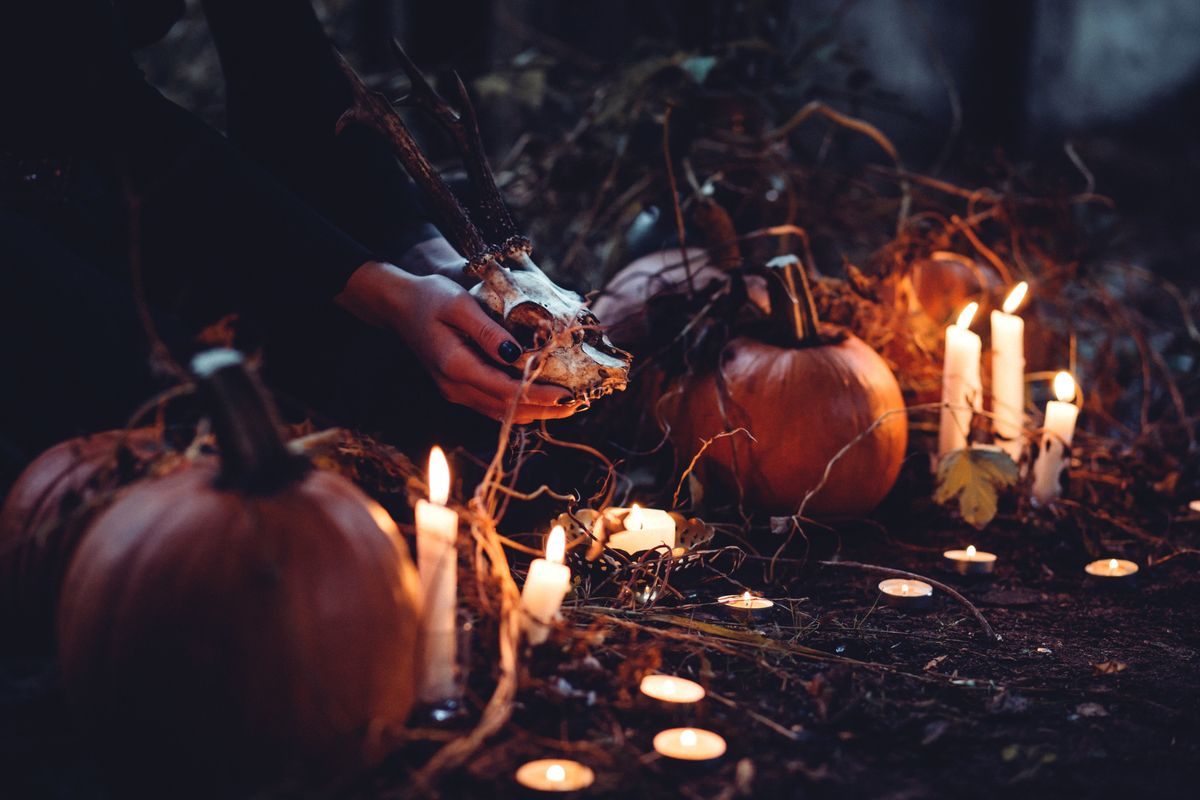The real, spooky origins of Halloween
How did a spooky Celtic festival transition into the universal tradition we know today as Halloween?

Person decorating pumpkin and candles
Growing up, Halloween was by far my favorite tradition to celebrate. Primarily because of the candy, but also because it offered the opportunity to play dress up. Not that I needed a specific day of the year to do so, but Halloween was the one night where I could dress up as an eerie little witch without getting puzzled expressions from my peers.
I never once stopped to fathom why numerous individuals actually celebrated the universal tradition. Probably because as a child, the only thing I was interested in was the concept of receiving free candy from strangers. A practice which is problematic in itself. So what are the origins of Halloween and why do we continue to celebrate it?
Introducing Samhain
Many individuals believe Halloween is a tradition developed in the U.S, by candy companies trying to earn a profit. However, the tradition was actually invented 2,000 years ago by the Celts, in an area known today as Ireland, the United Kingdom and northern France.
The origins of Halloween date back to the ancient Celtic festival of Samhain (pronounced sow-in). The pre-Christian festival was a celebration of the Celtic new year, marking the end of summer and beginning of fall harvest. The Celts believed the cold season ushered in a period of darkness, often associated with human death.
In addition, the Celts believed the worlds of the living and the dead became blurred during the commencement of the new year. This brings us to Halloween, which occurs on the eve of Samhain (hello, October 31st) believed to be when ghosts of the dead returned to earth.
It was during this sacred night people lit bonfires, offered sacrifices and paid homage to the dead.
Yeah, that's not creepy at all.
So where does the term 'trick or treating' come from?
During these gatherings, some villagers would wear animal skin disguises to drive away spirits. It wasn't until centuries later when people began dressing as ghosts, demons and other malicious creatures, in exchange for food and drink. This practice was referred to as "mumming," dating back to the Middle Ages and is thought to be an earlier form of trick-or-treating.
Similar to the Celtic commemorations of Samhain, celebrations in England included bonfires and masquerades. In a practice referred to as 'souling,' the poor would visit homes of the wealthy and receive pastries called 'soul cakes.' These exchanges often required a promise to pray for the souls of the homeowners' dead relatives.
In Scotland, rather than promising to pray for the dead, children would sing songs, recite poems, or tell jokes before collecting a treat. These treats often consisted of fruit, nuts or coins. It wasn't until the 1920s when the term 'trick-or-treating' was officially established, when pranks became a Halloween staple among with youths during The Great Depression.
After World War II, 'trick-or-treating' became an American commodity for millions of children. It was during this time candy companies capitalized on the ritual, creating lucrative Halloween campaigns primarily targeting children.
Oh ok, that makes total sense
So there you have it. Halloween is basically just the celebration of the Celtic New Year, with a bit of spooky folklore thrown in. And here I thought Halloween was just an acceptable time to binge on mounds of candy while donning a ludicrous costume.


